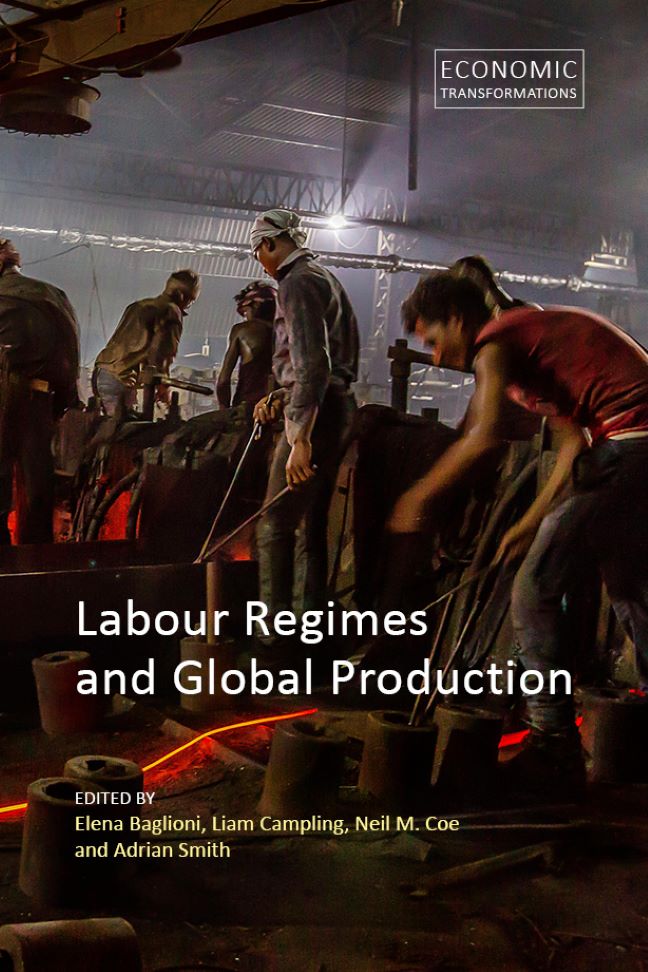9 - Uneven Despotization: Labour Regimes in Glocal Production
Published online by Cambridge University Press: 20 January 2024
Summary
Introduction
Debates about labour regimes in global production have become an important field for addressing what Thompson and Newsome (2004: 133) call the connectivity problem. This is the question of how labour process dynamics at the point of production connect to the broader political economy (see also Taylor et al. 2015: 15). In response to this question, among others, labour geographers, and GPN scholars in particular, have drawn upon and developed the concept of the local labour control regime (Jonas 1996; see also Chapter 4 by Peck). Often with reference to detailed case studies, they show how national and regional state policies, interwoven with global firm dynamics, constitute specific local social practices and institutions that shape working and living conditions (Pattenden 2016; Baglioni 2018; Smith et al. 2018). They have developed multi-scalar approaches, which see (local) labour regimes as being “continuously reproduced and/or transformed by forces … operating at a variety of scales” (Jonas 1996: 329).
In this chapter, I want to follow and deepen this multi-scalar orientation but in a slightly different way. Instead of using specific case studies, I want to propose a heuristic scheme that seems helpful for grasping the central logics and dynamics in contemporary global production – or, as I call it, glocal production. The term “glocalization” describes a seemingly contradictory dynamic of contemporary capitalism: that the socio-spatial fragmentation and deregulation of working and living standards, namely their downscaling, is the corollary of an upscaled, generalized logic of competitive capitalist accumulation (Swyngedouw 1997). The national scale continues to be highly relevant but it loses its former dominant position. In production, the glocal logic applies in the way that the multi-scalar fragmentation of labour processes is the basis of spatial dispersion and upscaled profit-led governance. The consequences are far-reaching, in terms of intensified socio-spatial competition between workers and with regard to the general transformation of labour's socio-political representation in the political economy and society.
In this chapter, I draw on Michael Burawoy's work on factory regimes to bring the fragmentation/transnationalization logic of production and its importance for workers into view. I distinguish heuristically between despotic and hegemonic labour regimes, and I understand current glocal production as reflective of their dynamics and rescaling. Burawoy's a priori political understanding of the labour process is very important for the analysis.
- Type
- Chapter
- Information
- Labour Regimes and Global Production , pp. 155 - 172Publisher: Agenda PublishingPrint publication year: 2022
- 1
- Cited by

